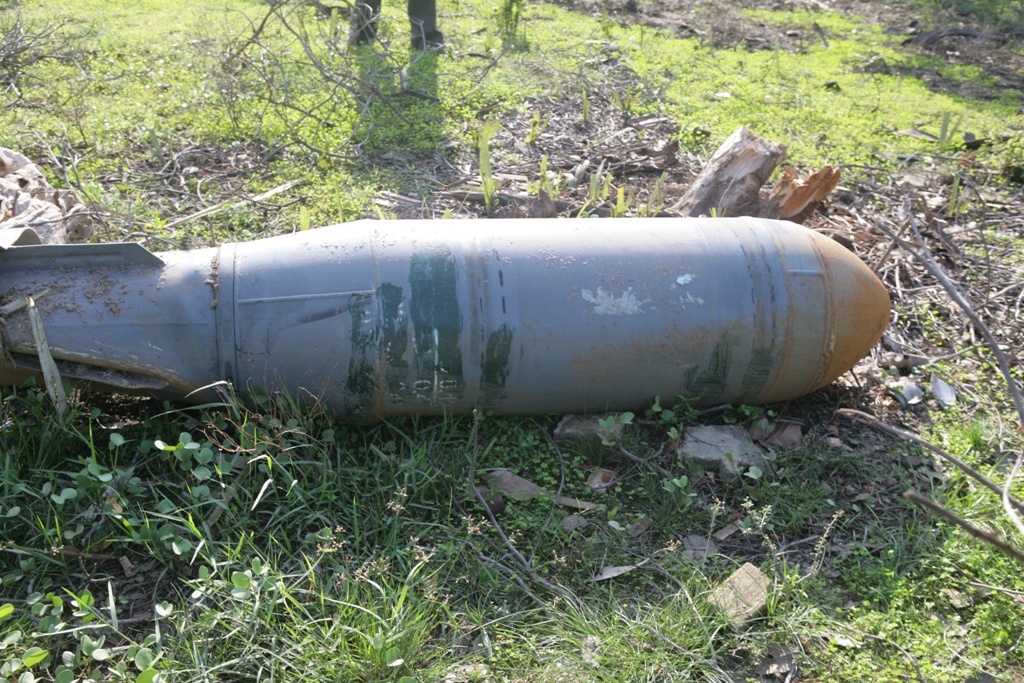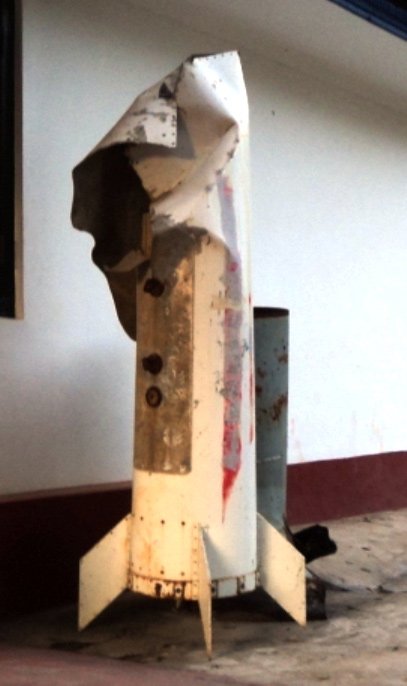 Cluster bombs found in Mullaiththeevu, January 2009. Courtesy of TamilNet |
The confirmation comes after a young boy was killed and his sister injured after trying to prise apart explosive device for scrap metal to sell.
Cluster munitions are packed with small “bomblets” that break up upon release, spreading over a large area. They often indiscriminately harm civilians, lying unexploded long after their initial deployment, leading to them coming under intense international scrutiny.
In an email on Tuesday written by Allan Poston, the technical adviser for the U.N. Development Program's mine action group in Sri Lanka, he states,
“After reviewing additional photographs from the investigation teams, I have determined that there are cluster sub-munitions in the area where the children were collecting scrap metal and in the house where the accident occurred. This is the first time that there has been confirmed unexploded sub-munitions found in Sri Lanka,"
"Cluster sub-munitions are extremely dangerous items of (unexploded ordnance) and can explode with the slightest movement or touch,"
Sri Lankan government spokesman Lakshman Hulugalla immiediately said the military had not used cluster munitions.
"We are denying that information," he said.
Meenakshi Ganguly, South Asia director for Human Rights Watch, commented,
"If there is evidence that cluster weapons were used, it would show yet again, the government's constant attempts at deception and underscore our demand that there should be an independent international investigation into all allegations of laws-of-war violations.”
The UN Panel of Experts Report on Sri Lanka confirmed that witnesses had reported explosions consistent with the use of cluster munitions by the Sri Lankan military, with several reports confirming their use. See here and here.
In March of this year, TamilNet also reported the discovery of cluster bomb containers by de-miners working in the North-East. See here for their report.
|
Cluster bomb casing discovered by de-mining team in March 2012. Courtesy of TamilNet. |
The Convention on Cluster Munitions treaty, which came into force in 2010, has been ratified by 70 states, and prohibits the use and stockpiling of cluster munitions. Sri Lanka is not a signatory to the treaty.

